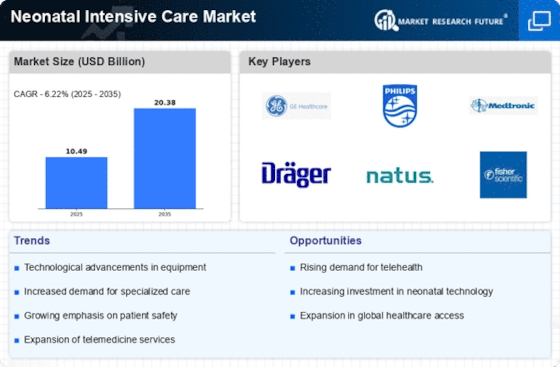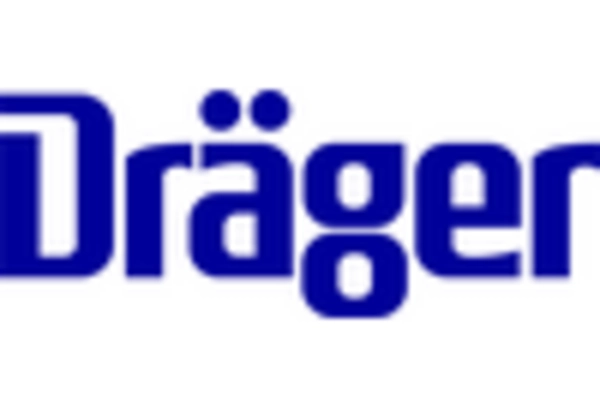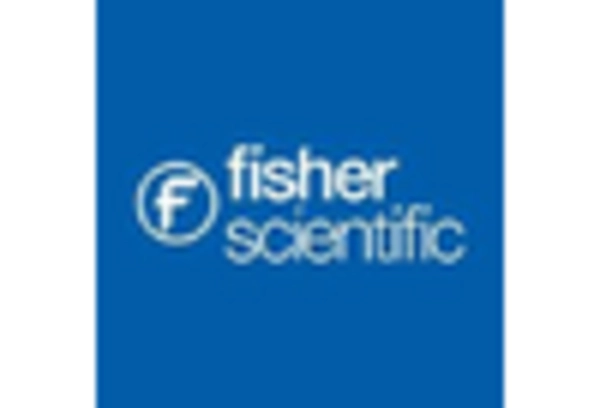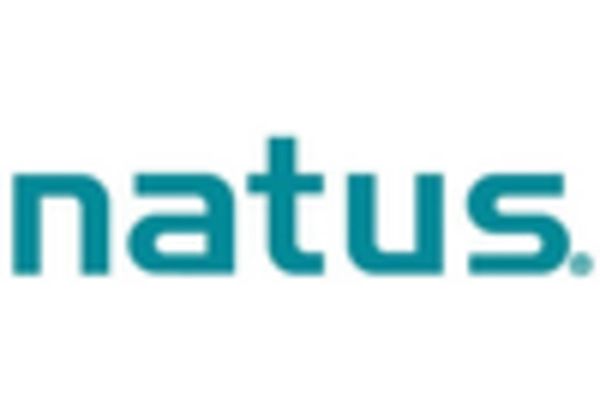Market Trends
Key Emerging Trends in the Neonatal Intensive Care Market
The Neonatal Intensive Care Market is experiencing dynamic tendencies influenced by technological advancements, increasing untimely births, and a developing emphasis on specialized take care of newborns. Here, we discover key market tendencies shaping the Neonatal Intensive Care landscape. One of the dominant traits inside the Neonatal Intensive Care market is the escalating prevalence of preterm births globally. With a better variety of infants requiring specialized scientific interest, there may be a growing demand for advanced devices and technologies within Neonatal Intensive Care devices (NICUs). There is a growing trend toward customized medicinal drugs in neonatology. Tailored treatment plans and interventions primarily based on the man or woman's neonatal needs, genetic elements, and medical histories are becoming extra accepted, contributing to stepped-forward results and decreased dangers. The Neonatal Intensive Care marketplace is witnessing a shift in the direction of mild ventilation strategies to minimize lung harm in premature toddlers. Innovative respiratory assist technology intends to offer effective airflow while decreasing the hazard of headaches associated with traditional strategies. Similar to the fetal care marketplace, the Neonatal Intensive Care area is embracing artificial intelligence for information evaluation, predictive analytics, and early detection of capability fitness troubles. AI programs decorate decision-making tactics, permitting healthcare vendors to supply more proactive and personalized care. A top-notch trend in Neonatal Intensive Care is the extended emphasis on family-focused care. Healthcare providers are recognizing the importance of concerning dad and mom within the care process, fostering conversation, and providing assistance to families with babies in NICUs. Neonatal nutrition is a key focus vicinity, with ongoing improvements in nutritional help for preterm infants. Specialized formulation, fortified breast milk, and superior feeding techniques are being advanced to cope with the specific nutritional necessities of neonates within the NICU. Collaboration among healthcare institutions, research groups, and industry players is on the rise. These partnerships facilitate joint studies and improvement efforts, leading to the creation of revolutionary solutions and advancements in Neonatal Intensive Care practices. Adherence to regulatory standards and the establishment of standardized protocols are crucial trends in the Neonatal Intensive Care market. Manufacturers and healthcare establishments are focusing on ensuring compliance with safety rules to beautify the best and reliability of neonatal care systems. The marketplace is witnessing efforts to increase recognition and training about neonatal care among healthcare professionals and dads and moms. Training packages, informational campaigns, and academic sources make contributions to improved understanding and greater care for neonates.


















Leave a Comment